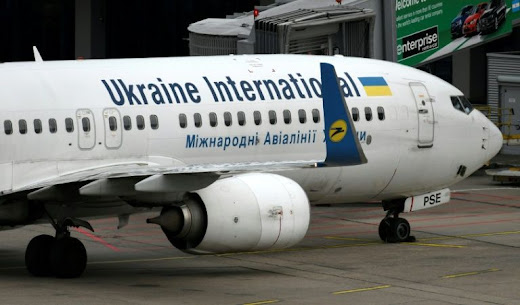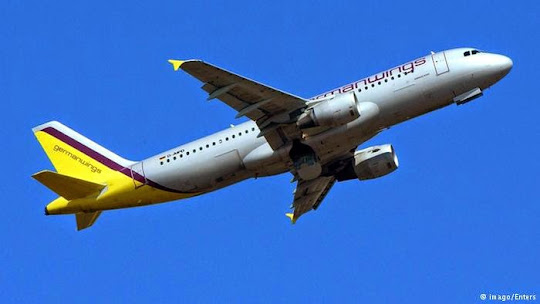Jakarta Globe, May 13, 2012
 |
This photo taken on May 11, 2012 and released by Indonesian volunteer
rescue group Relawan 37 on May 13, 2012 shows an Indonesian soldier
looking at wreckage of the Russian Sukhoi Superjet 100 on the slopes of
Mount Salak, in West Java. Dozens of Russian experts combed a remote
mountainside in Indonesia on May 13 searching for the flight recorders of a
Sukhoi jet that slammed into a dormant volcano killing everyone on board.
(AFP Photo/Ho/Duyeh Cidayu/Relawan 37)
|
Related
articles
Dozens of
fledgling airlines that have sprung up to serve Indonesia’s island-hopping new
middle class could jeopardize the archipelago’s recently improved safety
reputation, aviation experts say.
The trend
threatens to erode higher standards established during what one analyst called
a “tremendous amount of soul searching” by major carriers and the government
after 2007, when frequent crashes prompted the European Union to ban all
Indonesian airlines from landing on its runways for two years.
With growth
rates of nearly 20 percent per year, Indonesia is one of Asia’s most rapidly
expanding airline markets, but the country is struggling to provide qualified
pilots, mechanics, air traffic controllers and updated airport technology to
ensure safety. And with so many new, small carriers, it’s hard to monitor all
their standards.
“We are not
ready for this boom,” said Ruth Simatupang, an Indonesian aviation consultant
and former safety investigator.
Indonesia’s
two largest airlines — national carrier Garuda and rapidly expanding boutique
airline Lion Air — haven’t had a fatal accident in five years and eight years,
respectively. But small passenger and cargo carriers plus military aircraft
have kept the frequency of crashes to about once every two months, according to
statistics compiled by the Aviation Safety Network.
Just how
fast Indonesia’s airline market is growing came under a spotlight with
Wednesday’s deadly crash of a Sukhoi Superjet 100 plane during a demonstration
flight. While both the plane and the pilot were Russian, the flight was packed
with representatives of local airlines that the manufacturer hoped would
purchase the jetliner.
The number
of air passengers in Indonesia jumped by 10 million in a year to 53 million in
2010, according to the government statistics agency, and the upward trend
continued last year.
“Infrastructure
hasn’t kept pace with the growth of the airlines,” said Shukor Yusof, an
aviation analyst in Singapore for Standard & Poors.
He said the
government needs to “spend a vast amount of money” to expand safety monitoring
for the new carriers and invest in airport runways and technology. He added
that the relative ease with which new airlines can be established, though
tightened in recent years, has been a concern in the aviation community for
years.
In the past
five years, Indonesia has added 36 new passenger and cargo airlines, bringing
the total to 86 — many of them small carriers serving outlying islands where
the only travel alternatives are ferries.
Feeding the
demand for new air routes are Indonesia’s population of 240 million, its
geography of 18,000 islands and an economy that grew at a 6.5 percent clip last
year, creating a larger middle class eager to travel.
“Indonesia
is a natural market for growth,” said Brendan Sobie, chief Southeast Asia
representative for the Centre for Asia Pacific Aviation. “It’s one of the
world’s biggest populations and one of the world’s most underserved markets for
airlines.”
Transportation
official Herry Bakti Singayuda insists that Indonesia’s rapid airline growth is
still compatible with safety.
“We
evaluate the operators,” said Singayuda, who directs the Air Transport
Department under the Ministry of Transportation. “We control that growth based
on their capability, their facilities and personnel.”
He added
that the government has expanded flight schools, hired new inspectors and added
10 regional offices to keep up with the new airlines.
Yusof
agrees the government and major carriers have markedly improved safety
standards in the five years since the EU blacklist, which followed fatal crashes
by Garuda and now-defunct Adam Air in 2007.
The
government responded with a raft of new regulations and training schools, while
Garuda invested millions of dollars to train staff and upgrade its fleet. Lion
Air, which recently placed the largest-ever order for Boeing aircraft — 230
planes listed at some $22 billion — has also sought to improve safety, though
it took a blow when several of its pilots were arrested in recent months with
illicit drugs.
“Garuda and
Lion Air have done a tremendous amount of soul searching in terms of safety and
in bringing in experts ... to help them clean up their act,” Yusof said. The
newer airlines, however, may need more scrutiny.
Smaller
airlines serving the domestic market may have less money to invest in training
and hiring qualified pilots and mechanics, said Simatupang, the Indonesian
aviation consultant.
“There are
a lot of new pilots whose flying hours don’t meet the minimum standards, but
because the operators need them, they use them sometimes,” she said.
Like Yusof,
Simatupang called on the government to do more to regulate the new airlines.
“I always
say to the government, please do the new infrastructure and safety regulations
first,” she said. “And then allow the airlines to expand.”
Associated Press
Related Articles:











